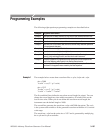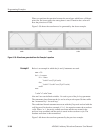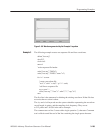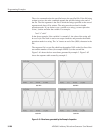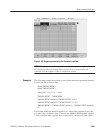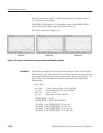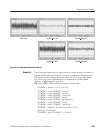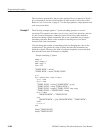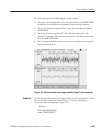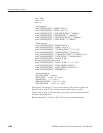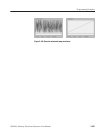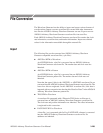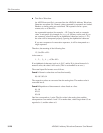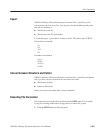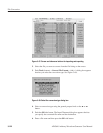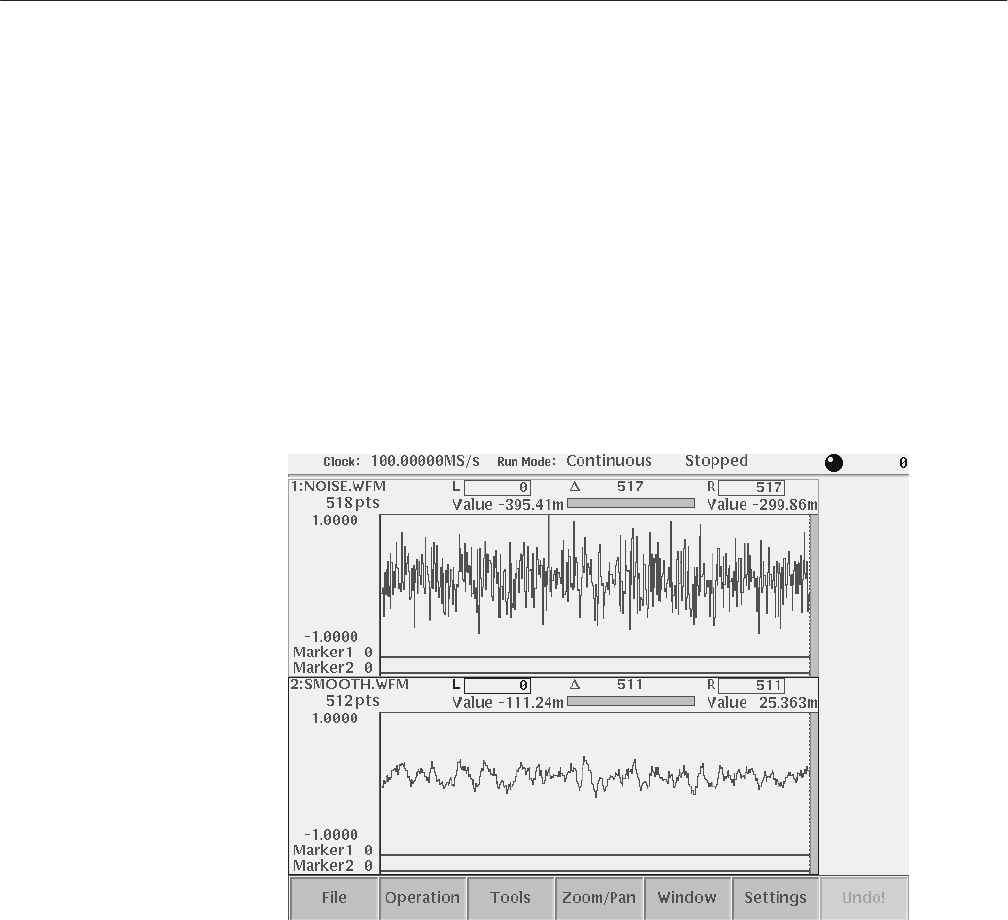
Programming Examples
AWG610 Arbitrary Waveform Generator User Manual
3-205
The following text describes what happens in this example:
1. The noise() function generates a noise waveform into the file NOISE.WFM,
in which the waveform data are normalized using the norm() function.
2. The extract() function extracts the first 7 data and stores them into the file
TEPM1.WFM.
3. The integ() function integrates the 7 data. The data of last point is the
amount of 7 point data. This last data is divided by 7 and then concatenated
to the file SMOOTH.WFM.
4. The for statement shifts the points to be read by one point for each loop and
repeats these procedures.
Figure 3-65: Noise waveforms before (upper) and after (lower) 7Ćpoint smoothing
The following example creates two sequence files and five waveform files. These
files are the same as those used in the Tutorial 6: Creating and Running
Waveform Sequences beginning on page 2–69.
’ Tutorial 6
delete(”MAINSEQ.SEQ”)
delete(”SUBSEQ.SEQ”)
Example 8



